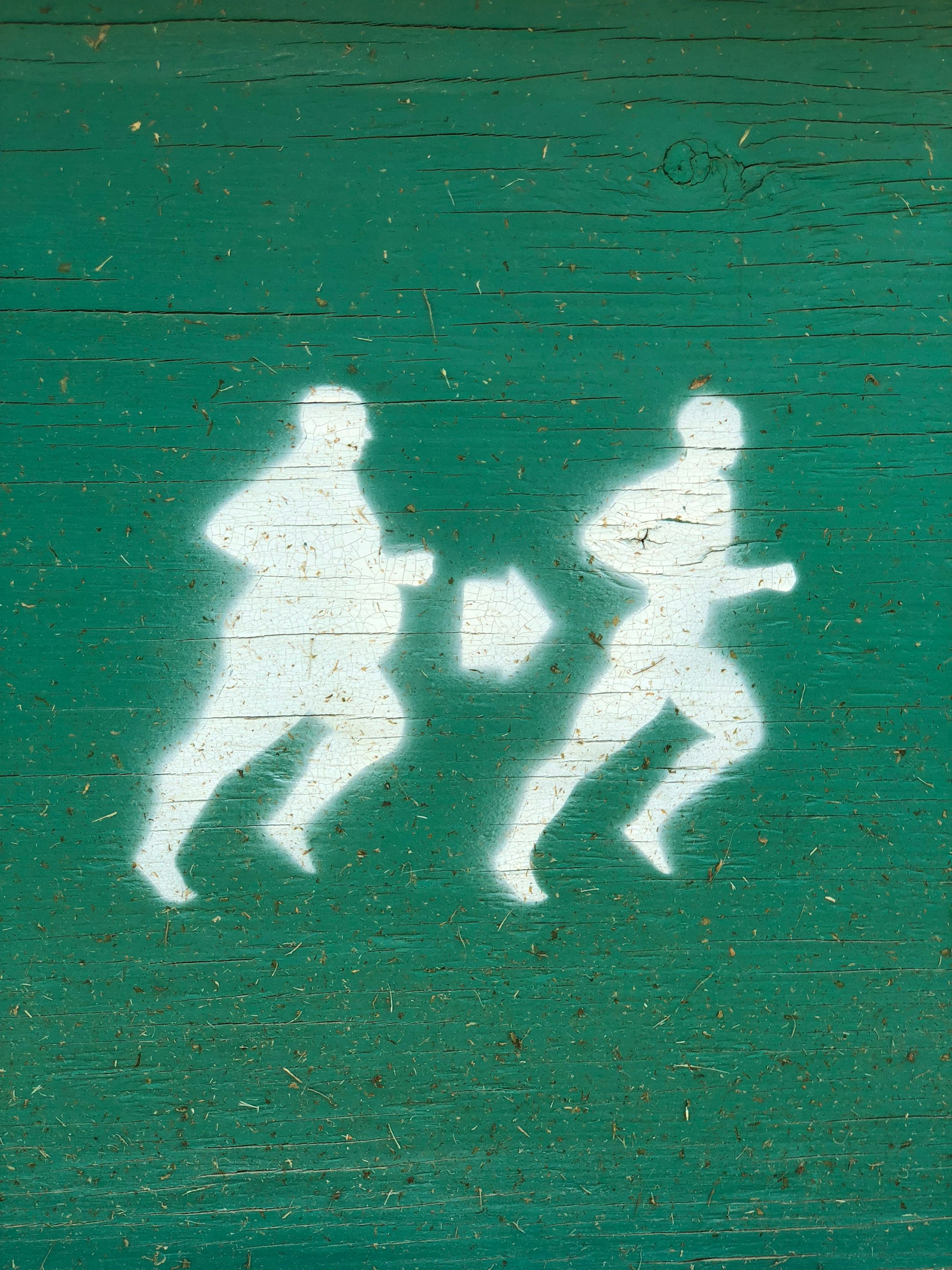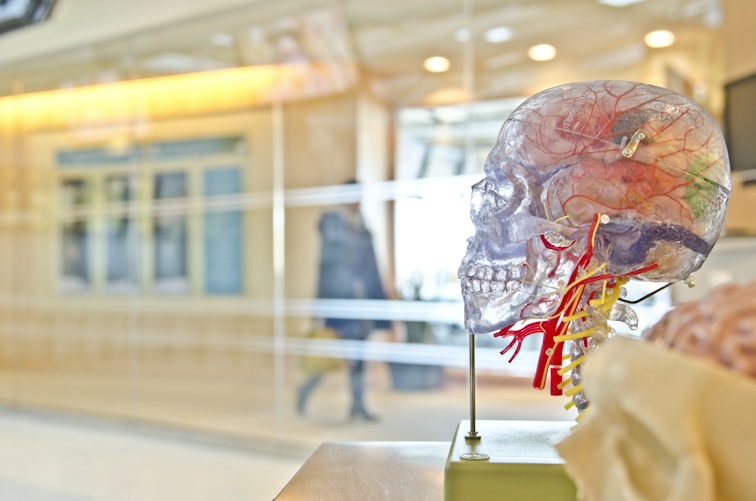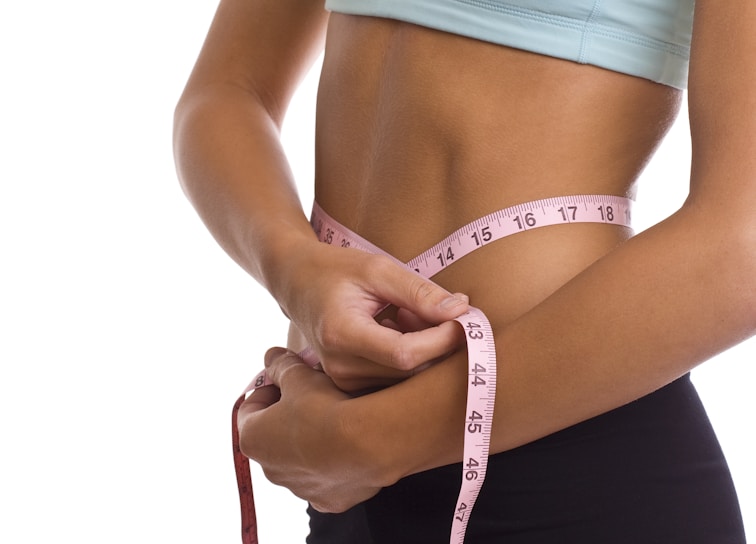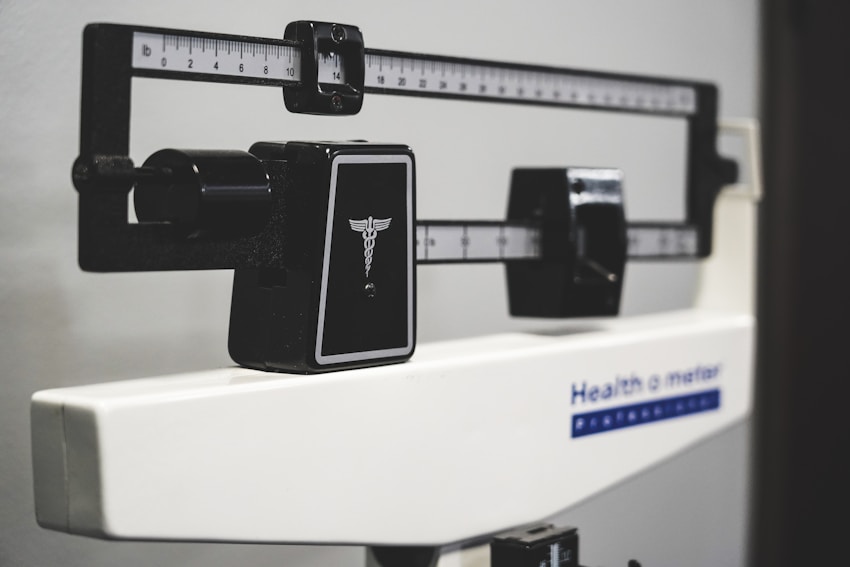So you’ve heard of the Ketogenic Diet (often referred to as the ketosis diet or keto diet) and you’ve got questions. Well, read on my friend! You're about to get an in-depth look at the what the keto diet is, and how you can implement it in your life to help create massive positive shifts in your health.
We tried to hit on all the most common questions people have. We hope this guide answers those questions and helps guide you on the path to accomplishing your G.O.A.T. (Greatest Of All Time) health desires.
What Is the Keto Diet?
People often think of the ketogenic diet as a way to lose weight. It is true that when you stay in ketosis (don't worry, we will explain this in a bit), you will shed excess body weight. That is just a fact of nature. And to be honest, there are a lot of people who only want to use the keto diet to lose fat and excess body weight they have never been able to lose before.
If that is your goal, you came to the right place. As a happy side-effect, you are going to realize a lot of other health benefits.
While the keto diet is becoming increasingly popular, it is certainly not new. The keto way of eating has been around for centuries as an informal way to treat epilepsy. It can be traced as far back as 500 BC as a form of fasting for multiple health benefits. Ancient Greek philosopher and physician Hippocrates taught that epilepsy was a biological and not a spiritual problem, and he recommended fasting (a form of low-carb eating like the keto diet) to treat and prevent it.
In the 1920s a keto approach to eating was developed as a way to effectively treat the seizures that plague epileptics. Controlled fasting for two or three days reduced seizures for epileptic patients and also improved mental function. These same benefits were present when carbohydrates were strictly limited.
Doctor Rollin Woodyatt was an endocrinologist who discovered acetone and beta-hydroxybutyric acid were found in high levels in patients that fasted and limited their carb intake. Those compounds are ketones and they are at the root of the ketogenic diet.
This way of eating can lead to quick and substantial weight loss, a healthier heart, a reversal of type 2 diabetes and other benefits besides treating epilepsy.

Understanding Ketosis
Ketones are created when your body reaches ketosis. This is a metabolic process that gets your body burning the fat you eat and stored fat instead of carbs for energy. As you eat fewer carbohydrates your body has to use something else for energy, and that something is fat.
This ketone-producing state is what makes the keto diet so good at burning excess body fat.
Doctors with the Mayo Clinic found that limiting daily consumption of carbs to 15 grams was very effective for treating childhood epilepsy. The rest of a daily supply of calories was taken in fat, and our modern-day ketogenic diet was born.
Low-carb diets these days are considered either strict keto (less than 20 grams of daily carbs), medium (21 to 50 grams) and liberal (51 to 100 grams). To stay in ketosis most people have to consume less than 20 or 25 grams of carbs each day. Additionally, protein consumption should be moderate, with fat making up 60% to 80% of your diet.
The Magic Keto Fats/Protein/Carbs Ratio
Keto meals that keep you in a fat burning state of ketosis will be 5% to 10% carbs, 60% to 80% healthy fat and around 20% protein. On a sample 2,000-calorie diet those ratios would look something like this.
• 70% fat - 155 grams - 1,400 calories
• 25% protein - 150 grams –500 calories
• 5% carbs - 25 grams - 100 calories
Ketogenesis continues when you restrict carb intake to less than 20 or 25 grams per day. This forces your liver to create ketones because your insulin levels have dropped. If you begin eating more carbs and protein this process slows.
Staying in ketosis means sticking to this low-carb, high-fat, moderate-protein ratio. This is the vehicle for the many health benefits the keto diet can deliver.
You might be thinking, how do you know if you are in a ketogenic state? How can you tell if you are in ketosis? Everyone is different, and some can reach this healthy state by eating more carbs than others. Fortunately, it is easy to measure ketone production.
How to Tell If You're in Ketosis
The production of ketones can be measured. You can have your doctor do it or handle the job yourself.
If you don't enter into ketosis you don't see the best results of this low-carb eating plan. It is a nice confidence boost as well, when you know your carb-cutting efforts are paying off. This helps you see what you are doing right (and wrong), so you can make the necessary changes.
One informal way to spot ketosis is to do a sniff test.
Smell your breath. The creation of acetone, beta-hydroxybutyrate and other ketones can create a slightly less than pleasant smelling breath. Your urine may smell differently as well. You may notice a metallic or fruity taste to many foods. This change in your taste and the smell of your breath usually disappears naturally in just a few weeks.
A more accurate way to see if you are in ketosis is to test at home with keto strips.
You can purchase a pack of 50 to 100 for around $10 at your local pharmacy or online. They are urine testing strips that instantly tell you the ketone level in your urine. Follow the directions on your keto strip package, and don't check for a few hours after waking in the morning.
An even more accurate test involves checking your blood. You can have your doctor perform this blood test, and there is a home alternative. Purchase a blood ketone meter (usually available for $40 to $50). The testing strips used with this meter run about $5 each. This provides a very accurate level of ketones in your blood.
A reading of 0.5 to 5.0 millimeters reveals that you are in ketosis.
The good news is you don't have to test forever. After you get used to eating the keto way and know what eating habits put you in ketosis, you can stay there without continual testing.
The Big Health Benefits of the Keto Diet
We mentioned that the ketogenic diet is a great way to lose weight if you are overweight. It triggers your body's natural fat burning ability.
If you have had difficulty losing weight and you know you would be healthier without those extra pounds, you're in luck. Eating according to the keto plan can result in significant weight loss, especially over the first few weeks for a beginner.
As you begin to develop a healthier fat to body weight ratio, you will have less fat to lose. This is beautiful. It means that you are becoming healthier by reducing your risk of the multitude of health problems that accompanies being overweight or obese. Once you reach or get close to your ideal body weight, you will be taking on fewer carbohydrates that can be stored as fat.
Since you are eating lots of healthy fats on this plan, your body will burn that fat for energy. When you do slip up and fall out of ketosis (everyone does, nobody is perfect), all you need to do is start eating this way again. Your body will once again begin to burn any excess fat you have retained and you can once again return to a healthy body weight.
By the way, this happens for men, women and even children who are obese or overweight. The keto diet works for everyone.
It just makes sense that when your body does not have carbohydrates for fuel, it looks elsewhere. It uses your body fat and the fat you consume as fuel, you are taking on fewer carbohydrates that can be stored as fat, so weight loss is nearly instantaneous when you begin the keto diet.
By the way, don't be worried about losing weight if you are already at a naturally healthy body weight. The keto diet does not lower your weight continuously. It only lowers your body weight by burning excess fat that you already have on you. Once you hit a healthy weight, the keto diet can help you stay there.

What Are Some Health Benefits of the Keto Diet?
Let's say you are one of those lucky individuals who already enjoys a healthy body weight. There are still plenty of reasons to embrace the keto way of eating. Get excited because the following significant health benefits can be a part of your life when you adopt the keto diet.
Weight Loss
Your earliest ancestors were not fat and obese. They didn't have all the high-carb, high-sugar, low-nutrition, food-like eating choices that surround you today. They existed basically on lots and lots of vegetables, some fruits every now and then, and animal meat.
This is not exactly like the keto diet, but is very similar.
Eating few carbohydrates meant that Paleolithic man and the other prehistory folks in your family tree didn't retain very much fat. They burned it quickly as an energy source since their bodies didn't have many carbs to use as fuel. We talked earlier about the exact process which leads to weight loss through ketosis, so we will not repeat that here.
Suffice it to say that if you have tried and failed to lose weight with exercise and diet plans before, embrace the keto diet and watch the pounds fall off.
Being even just a few pounds overweight increases your risk of developing a high blood sugar level. This can lead to diabetes and kidney disease, problems affecting your vision, nerve damage, high blood pressure, heart disease and stroke.
Yes, you can use the diet so you look better in your swimsuit, but the comments you get from how great you look pale in comparison to the overall health benefits of reaching and maintaining a healthy body weight.
Improved Heart Health
You really only need to know one statistic here. Heart disease and stroke are the world's biggest killers, accounting for more than 15 million deaths in 2016. That data comes to us from the World Health Organization (WHO), which claims that heart disease has been the leading cause of death globally for the past 15 or 20 years at least.
Your heart gets healthier on the keto diet, plain and simple.
This isn't the case if you adopt a “dirty keto” way of eating. Not all fats are healthy. The keto diet has you eating healthy fats, choosing avocados instead of pork rinds. If you eat a lot of unhealthy fats rather than healthy fats on the keto diet, you may still lose some weight. However, you are just moving your health risks somewhere else.
Stick to a smart keto eating plan and there is significant evidence that your heart health gets a boost. The National Institutes of Health in the United States sites studies that show unhealthy cholesterol levels drop significantly on the keto diet. This is one of the ways your heart benefits from making this dietary change.
Enjoying a low-carb/high-fat diet also lowers triglyceride levels. You enjoy a better cholesterol profile and if you have high blood pressure, your blood pressure starts to return to normal. Your heart benefits from every one of these keto side-effects.
All-Day Energy And Better Sleep
Your first few days on the keto diet might not be your most comfortable. That is why we recommend preparing your body for this nutritional change in advance (we show you exactly how to do that in a later section of this report). Even without prepping your body before you go keto, don't be surprised if you realize increased natural energy levels, usually between days 4 and 7.
Another wonderful side-effect is fewer cravings for simple carbs that cause many health problems. Because your insulin levels are returning to a safe range and you are consuming healthy fuel (good fats), you always have plenty of readily available energy.
If you are overweight or obese, this extra energy also comes from the fact that you are not carrying around a bunch of excess fat as you lose weight on the keto diet.
Researchers still aren’t really sure why this smart approach to eating improves sleep patterns, but it does. Study after study shows that when people adopt a ketogenic diet they fall asleep quickly, stay asleep during the night, and wake up fresh in the morning.
Reduced Appetite
This way of eating reduces your appetite naturally. When you eat a lot of vegetables, most or all of the satiety sensors in your stomach that tell you how full you are become fully engaged.
This doesn't happen when you eat a lot of simple carbohydrates. Your body recognizes that you have received little nutrition even though you may have consumed tons and tons of calories and carbohydrates. Your brain sends signals through your nervous system that tell you to eat again and get some nutrition into your body. Since simple carbs are highly addictive, that is what you reach for, and you continue to feel hungry even though you are eating a lot.
This is the opposite of what happens on the keto diet.
You experience a reduced appetite because your body realizes you are getting a lot of the nutrients and minerals it needs. When this happens, that tells you that you are full and you don't need to eat anymore. This also happens because this eating plan delivers a lot of healthy dietary fiber and protein, two things that make you feel full longer.
This leads to fewer unhealthy food cravings and less hunger.
Reversal of Type II Diabetes
Type II diabetes can be reversed. As many as 90 to 95 out of every 100 diabetes cases is of the type II variety. This is the type of diabetes which is called a lifestyle disease. By exercising and moving very little and eating a lot of unhealthy foods, diabetes can develop.
When you adopt different lifestyle choices, like staying physically active and following the keto diet plan, you can reverse type II diabetes. This happens all the time to men and women of different ages. The diabetes doesn't disappear, but it goes dormant.
Often this means you experience none of the diabetes symptoms you did in the past. Many people that have reversed diabetes with the keto diet are able to discontinue their diabetes medications entirely.
Better Ratio of Good-to-Bad Cholesterol
High cholesterol levels can harm your heart. We mentioned how the keto diet plan is so good for heart health earlier. One way is by managing your good-to-bad cholesterol level.
You are eating healthy fats and a few healthy carbohydrates and steering clear of unhealthy fats and simple carbohydrates. This leads to a healthy cholesterol level.
Healthy Blood Pressure Level
Do you have high blood pressure? If you do, the keto diet plan can quickly drop your blood pressure to a safer range. This goes back to the positive heart health influence offered by this smart approach to eating.
Reduces Risk of Brain Disorders and Epilepsy
Doctors Adam Hartman and Kristin Baranano published a report in 2008 showing how the keto diet effectively treated a number of brain-based health problems. From Alzheimer's to Parkinson's disease, autism to depression, traumatic brain injury, narcolepsy, autism and other brain-based disorders, the keto diet provided relief from symptoms.
Other research shows that adopting a keto diet leads to a reduction in the risk of developing neurological problems and even epilepsy. By the way, the Mayo Clinic tells us you can expect better memory, cognition, clarity and focus and even fewer migraines and headaches when you start eating this way.
Lowers Risk of Cancer
This is a biggie for sure. The number of ways that consuming too many simple carbohydrates can harm you is virtually endless. One way that a high carb diet can ruin your day is when it leads to your doctor telling you that you have developed cancer.
There are plenty of doctors and healthcare professionals who recommend the ketogenic diet as a complementary treatment to chemotherapy for treating cancer.
Other research shows that this approach to nutrition reduces your chance of developing cancer in the first place. Some experts believe this is because the keto diet reduces high blood sugar levels and insulin complications, two conditions linked to some cancers.
Reduces Inflammation, Which Has Multiple Benefits
Less inflammation leads to better skin and hair health. Inflammation is a leading cause of acne and other skin problems. When different parts of your body become inflamed, several health problems develop.
One of the ways the keto diet helps epilepsy patients was discovered by the early ketogenic diet researchers in the 1920s. It causes less inflammation throughout the body, and this helps reduce the severity and frequency of epileptic seizures. This additionally means a lowered chance of developing psoriasis and eczema, irritable bowel syndrome (IBS) and arthritis, acne and other conditions related to inflammation.
Less inflammation also means less pain if you do sustain an injury or develop a disease. Most chronic diseases have some link to inflammation, so reduced inflammation leads to better overall health and well-being.
Better Digestion
Many health problems can be traced to your gut. Hippocrates knew this as far back as 500 years BC. He said, "All disease begins in the gut." While not every human illness starts with a bad digestive system, most of them actually do.
Many digestive problems are linked to the high-carb/low-nutrition/low-fat/high-sugar diet that many modern people embrace. Thanks to the healthy fats, high amount of dietary fiber, moderate levels of protein and high nutrition this diet plan delivers, your digestion is going to improve. This means you're less likely to develop one of the many health problems related to poor digestion.
Boosts Female Fertility and Hormonal Balance
An article published in 2013 by ScienceDirect.com explored a possible link between the keto diet and increased fertility in women. What the researchers found was that low-carb eating does improve fertility, while also reducing or eliminating monthly female symptoms such as prolonged menstrual periods, weight gain and acne.
The diet has also been praised by women who say they find their moods and emotions are better balanced. Stabilizing blood sugars and lowering insulin are proven ways to regulate healthy hormone levels in women, and this is exactly what the keto diet does.
Better Visual Health
Many of us take our visual health for granted. If we wind up getting glasses we just assume it was inevitable. That's actually not the case. People with diabetes will tell you that high blood sugar levels have a negative impact on eyesight.
This condition also increases your risk for developing cataracts. Keeping blood sugar levels stable with the keto diet leads to better vision and overall eye health, as reported by countless keto dieters.
Less Anxiety, Stress, and Depression
Stress, anxiety and depression are linked to hormones and chemicals in your body. When your body properly regulates hormones and other chemicals, you don't feel stressed out, anxious or depressed as often as when these chemicals are out of balance.
By promoting a healthy heart, driving the loss of excess body weight and regulating insulin levels, the keto diet leads to less stress and depression. You may also find yourself experiencing more positive emotions as you see significant and maintained weight loss that helps improve your self-image.
Are There Risks To The Keto Diet?
There are some situations where you should avoid going keto, or at least add a few more carbs to your diet. Some people need to be careful with the keto diet. The low-carb nature of this healthy eating plan influences certain physical states. The following conditions mean you have to make certain changes to ensure you get the healthiest keto diet experience.
High Blood Pressure
Managing your body weight can help you keep high blood pressure (hypertension) at bay. That's good, because the first sign of HBP is often death. This is why everyone should get their blood pressure checked at least a couple of times each year.
On the plus side, the keto diet's low-carb approach can lower your blood pressure naturally. Some keto eaters have reported that they were able to stop taking their hypertension medicine entirely thanks to the keto diet and other lifestyle changes.
On the downside of the equation, there are a couple of situations where those with high blood pressure should take care with the keto eating plan.
If you take HBP medicine, going keto can lead to low blood pressure. This low-carb diet means changing blood pressure medicine dosages for a lot of people.
Another consideration has to do with salt and bouillon. The keto eating plan can lead to the keto flu. You develop symptoms that mirror those of a cold or flu. To keep this from happening you can increase the amount of fluids and salt you consume for the first couple of weeks in the plan (more on this and other keto flu prevention techniques later in this report).
The sodium in salt can raise your blood pressure if you consume too much. If you are taking blood pressure medications and still show a high BP level, do not increase how much salt and bouillon you eat.
Breastfeeding
Moms can eat healthy foods that are good for them and their babies on the keto diet. Going keto turns on processes in the human body that offer a lot of health benefits, including for moms-to-be.
What breastfeeding moms shouldn't do is go “strict” keto.
Breastfeeding removes up to 30 grams of sugar and other carbs from mom each day. This means dropping to less than 50 grams of carbs each day is not recommended. A strict keto approach aims for no more than 20 to 25 grams of carbs each day.
Breastfeeding moms need to enjoy a medium low-carb diet, eating at least 50 grams of carbs.
In rare cases, not getting enough carbs can lead to a condition called ketoacidosis for women who are breastfeeding. This toxic state means your body does not regulate ketone production properly. The risk is very low but very real, sometimes ending in death. Stay above the 50 grams per day carb count if you are breastfeeding and you should be fine.
To get more carbs into your diet, just eat 3 large fruits each day. Then stick to the keto diet regimen the rest of the day and you should stay above 50 grams of carbs.
People On Diabetes Medications
A low-carb, high-fat diet like the keto eating plan can lead to low blood sugar levels. This sometimes happens if insulin doses are not regulated to recognize what is often a drastic change in diet. If you are taking insulin or SGLT2 inhibitors, talk to your doctor about your desire to adopt a keto diet.
Lowering your carb intake means you will automatically be avoiding high doses of those carbs that raise your blood sugar. If you continue to take your normal amount of insulin at the same time, this can lower your blood sugar to an unhealthy level.
Don't worry, there's good news for diabetics as well.
For many people with type II diabetes the condition can be reversed with the help of the keto diet and other lifestyle changes. This approach to nutrition also helps many folks with type I diabetes realize better blood sugar control. Always talk with your doctor before changing your diet in any way.
Diabetics should also be more diligent regarding checking their blood sugar, especially at the start of the keto diet. This can help you avoid blood sugar problems. Additionally, type 1 diabetics shouldn't dip below 50 grams of daily carbs or ketoacidosis is possible.

What is the Keto Flu and How Can It Be Avoided?
Perhaps you have heard of the dreaded keto flu. The first thing you should understand is that not everyone experiences this. Of the many that develop cold and flu symptoms shortly after starting the keto diet, many of those experiences could have been avoided. Here are a few of the symptoms you may develop as your body becomes accustomed to this new and healthy way of eating.
• Nausea and constipation
• Stomach cramps
• Brain fog and headaches
• Cravings for bad carbohydrates
• Dizziness, irritability, insomnia
Believe it or not, there is a lot of good news here. First off, understand that this condition almost never lasts more than two weeks, and some people report that it disappears in a few days. Secondly, intermittent fasting and exercise have proven effective for treating symptoms.
The flu-like symptoms appear because your body is going through a massive change. Especially when you have been eating improperly for years or even decades, this abrupt change is going to trigger several responses.
If you experience this situation, exercise and stay physically active. Drink a lot of water throughout the day and increase your fiber intake. Get plenty of rest, eat more healthy fats and experiment with your daily carbohydrate intake.
Those are some simple ways to treat this condition that will go away on its own in 1 to 2 weeks. Here is how you can prevent this from happening.
Prepping Your Body for Success
You can perform a "keto reset" before you start the ketogenic diet plan. This returns your body to how it previously functioned at its most naturally healthy level. You are preparing your body for what it is about to go through. Here is what to do:
• Clean out your pantry and refrigerator. Get rid of all those high-carb, bad-carb temptations and you reduce your cravings. This means getting rid of sugar, bread, pasta and other food you should avoid (which we have conveniently listed for you later in this report).
• Begin eliminating carbohydrates gradually instead of overnight. Take two weeks or 30 days to slowly cut back on your carbohydrates. Trying to remove all processed carbs from your diet at once is very hard on your body.
• Many nutritionists believe that keto flu symptoms are all about an electrolyte imbalance. This means you should increase your electrolyte intake by adding a little more salt to your meals for 2 to 4 weeks leading up to the keto diet. Choose Himalayan pink salt if you can, because it is the healthiest. Start adding bone broth to your meals.
• Take magnesium and potassium supplements.
• Eat more avocados and salmon, nuts, mushrooms and leafy green veggies.
• Drink lots of water. It is believed that at least 6 or 7 out of every 10 people don't drink enough water on a daily basis. Hydration is important for optimal health and well-being, and staying hydrated can help you avoid the keto flu.
• Get 7 or 8 hours of rest each and every night.
These are proven ways to ease your transition into the keto diet. Start a few weeks before you plan on going 100% keto and you could avoid keto flu symptoms entirely.
Are There Any Other Keto Diet Risks?
Diarrhea and poor physical performance are a couple of negative side-effects linked to the keto diet plan.
The diarrhea is almost always caused by a lack of fiber in the diet. This means you are eating a lot of meat and healthy fats, but not enough fiber-rich vegetables. Broccoli and artichokes, blackberries and Brussels sprouts, raspberries and pecans, flax seed, pumpkin seeds, avocados, almonds and chia seeds have a lot of healthy dietary fiber.
Eating more of these foods can eliminate the diarrhea that sometimes accompanies the beginning of the keto diet.
Poor physical performance could be related to an extremely low carb intake and not getting enough protein. Protein is required by every cell in your body and if you go with an extreme carbohydrate reduction for a long period of time, these two conditions could affect your physical and athletic performance.
This doesn't mean you should go crazy and start eating lots of carbs.
That is not what the keto diet is about. However, if you are only getting 5 or 10 grams of carbohydrates each day, you need to push that up to around 20 or 25 grams and see how this affects your physical abilities. The same is true with protein, which should be making up 20% are 25% of your daily keto calories.
We mentioned the danger of ketoacidosis earlier. We also noted that people with diabetes should avoid going on the keto diet, or at least talk to their doctor about changing their insulin dosage. Ketoacidosis is very rare but does occur for some people that build up too many ketones over time. We will say it again – before you adopt any significant change in your diet, you should consult your doctor or healthcare professional and let him know what you are planning on doing.
What Foods Do You Eat on the Keto Diet?
This is the heart and soul of the keto diet plan. Eat the following foods and you can stay in ketosis. If you have a doubt and if the food is not represented here, stay away. We have also listed foods to avoid when you are shopping, fixing meals or eating out.

Keto-Approved Foods
Alright, now we are getting down to brass tacks! If all you dois print out this list of what foods you can and cannot eat and use it when shopping for groceries and planning meals, you can get your body into a healthy state of ketosis.
1) Low-Carb and No-Carb Vegetables
Arugula, spinach, eggplant, mushrooms, broccoli, cauliflower, zucchini, bell peppers, fennel, cabbage, celery, Brussels sprouts, kale, artichokes, asparagus, cucumber, pumpkin, zucchini, cabbage, green beans, peppers and onions
2) Low-Sugar Fruits
Tomatoes, blackberries, melons, blueberries, coconuts, limes and lemons, avocado, raspberries, olives and strawberries
3) Seafood
Salmon, clams, squid, mackerel, crab, mussels, sardines, shrimp, tuna and cod, wild-caught if at all possible
4) Meat, Eggs and Poultry
Eggs, turkey, steak, bacon, venison, lamb, chicken, beef, pork, bison, goat, organ meats, grass-fed and organic when they are available
5) Seeds and Nuts
Macadamia nuts, sunflower seeds, pine nuts, flaxseed, chia seeds, pecans, hazelnuts, pumpkin seeds, Brazil nuts, walnuts, sesame seeds and almonds
6) Dairy Products
Cheese, plain Greek yogurt, butter, cottage cheese, heavy whipping cream, full-fat cream
7) Oils
Extra virgin olive oil, avocado oil, ghee, coconut butter, coconut oil, nut oils, MCT oil
8) Herbs and Spices
All fresh and dried herbs and spices
9) Condiments
Olive oil mayonnaise, unsweetened ketchup, mustard and oil-based salad dressings
10) Beverages
Unsweetened tea, unsweetened coffee, water and freshly made vegetable juices without fruit
11) Miscellaneous
Nut butters with no added sugar, sugar-free jerky, low-carb crackers (read nutrition labels), dried seaweed, unsweetened dark chocolate (at least 70% cacao), Stevia, monk fruit, erythritol, chicken or bone broth, coconut flour and almond flour, unsweetened cocoa powder
The Foods You Should Avoid
1) Fruits with Higher Carbohydrate and Sugar Counts
Apples, bananas, papayas, oranges, fruit juices, pears, grapefruit, pineapples and grapes
2) These Vegetables
Carrots, beets, beans, lentils and legumes, sweet potatoes, regular potatoes, yams and turnips, corn, peas, root vegetables
3) Meat
Processed meats such as deli meats, hot dogs, prepacked sausages and bologna, processed, prepackaged cold cuts and frozen meat products that may contain additives, preservatives, fillers, sugar and other ingredients that could knock you out of ketosis
4) Dairy Products
Dairy milk, cottage cheese, most yogurts (some cottage cheese and plain Greek yogurt are okay, check nutrition labels for carbohydrate count and sugar)
5) Oils
Processed vegetable oils, hydrogenated oils, margarine, safflower oils, oils with trans fats
6) Condiments
Maple syrup, jams and jellies, ketchup, barbecue sauce and other condiments with sugar
7) All Grains and Grain-Based Foods
Wheat, corn, rice, pasta, granola, cereal and breads
8) Beverages
Juice and soda, even fruit and vegetable juices with additives and high sugar count, wine and beer, any drinks with sugar
****Remember to stick to the keto diet macro ratio, even when you are eating 100% keto-approved foods.
Ratio:
• 5% to 10% carbs
• 60% to 80% healthy fat
• 20% to 25% protein
Apps That Help You Stay on the Keto Straight and Narrow
Sometimes technology is your friend. That's the case with the following apps that can help every aspect of your keto journey. Just search the following in your preferred app store:
• Carb Manager
• KetoDiet
• Senza
• Calorie, Carb & Fat Counter
• Fit Men Cook
• My Macros+
• Keto.app

Lifestyle Practices that Boost Your Keto Diet Results
Living la vida keto isn't just about dieting the smart way. Sure, we know that 60% to 65% of your health in mind and body is determined by what you eat and drink. But there are other things you need to be doing as well so you can give yourself the best possible chance of staying in ketosis. Here are a few things you can do to keep your keto journey as successful as possible.
• Exercise regularly. Getting just 150 minutes of moderately intense to intense physical activity each week is a recommendation made by the World Health Organization (WHO), the American Heart Association (AHA) and the Mayo Clinic for head-to-toe health and well-being.
• Drink a lot of water every day. Drinking beverages which are keto-approved throughout the day is a smart health practice. Hydration is important for the human body, so keep a water bottle handy.
• Try an intermittent fast every now and then or every day if you can. This means you go 14 to 16 hours in a row every day without eating. This may sound hard, but after you start eating the healthy foods on the keto diet, you might find this easier than you can imagine now.
• Test your ketone levels regularly. How do you know you're in ketosis if you don't check your ketone levels?
• Stay below 20 g of carbs per day for the first few weeks of this healthy eating plan. You may be able to bring this up to 25 to 30 g daily and still stay in ketosis after a few weeks or a couple of months.
• Stop smoking and cut back on your intake of alcohol. Beer and wine are high in carbohydrates and drinking too much alcohol is unhealthy in a number of ways.
• Add coconut to your meals, and even your coffee. One of the best ways to increase ketone levels is by consuming medium chain triglycerides (MCTs), like those in coconut oil.
• Don't go overboard on the protein. Remember that just 20% to 25% of your daily calories should come in the form of protein.
• Eliminate stress from your life wherever and whenever you can. Stress is linked to 5 of the top 6 causes of death, and stress can lead to unhealthy eating habits that throw you out of ketosis.
• Give yourself a break when you step out of line. No one is perfect, and that includes you. We all slip and fall from time to time, and all that matters is that you get up and get back on the keto bandwagon.

READY TO GIVE KETO A TRY? WAIT!
You are not being told about many of the most important keto breakthroughs being discovered by leading doctors and medical research centers.
There’s no big conspiracy.
It’s just that these breakthroughs usually don’t get much publicity.
That’s because they’re reported in medical journals intended for doctors such as The New England Journal of Medicine… The Journal of the American Medical Association… Lancet… The American Heart Journal… among many others.
Or; in some cases, these discoveries are made in prestigious health centers in other parts of the world, and receive little or no coverage in the US media.
In still other cases, highly respected medical doctors uncover these breakthroughs in clinical studies in their own private practices. They report their findings to professional medical societies, but these discoveries often escape the notice of the mass media.
All of this leaves gaping holes in the health information you should be getting. Yet these “under-reported” discoveries can be of tremendous importance to you and those you love.
That’s why we created My Health G.O.A.T. (Greatest Of All Time).Until My Health G.O.A.T. came along, if you wanted to try to keep on top of new keto developments and scientific keto breakthroughs, you would have to subscribe to a shopping cart full of professional medical journals and newsletters.
And you’d have to spend a king’s ransom for the privilege!
You might also have to get a medical degree to understand many of the articles. But now that’s changed, thanks to My Health G.O.A.T.
Here are our top 12 articles you can read right now that will help give you a shortcut to success during your keto journey to weight loss:













